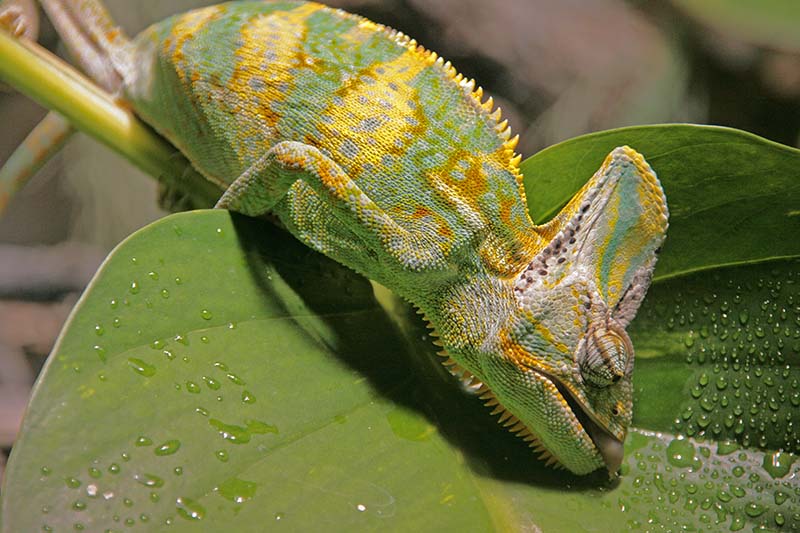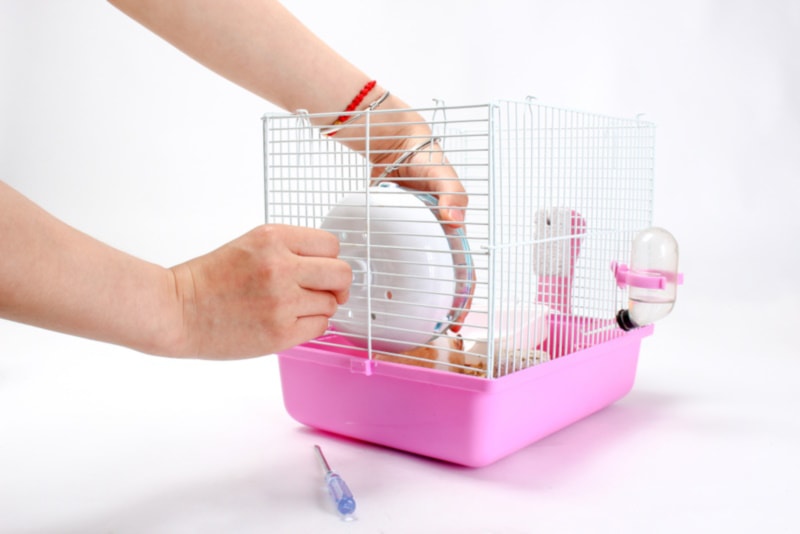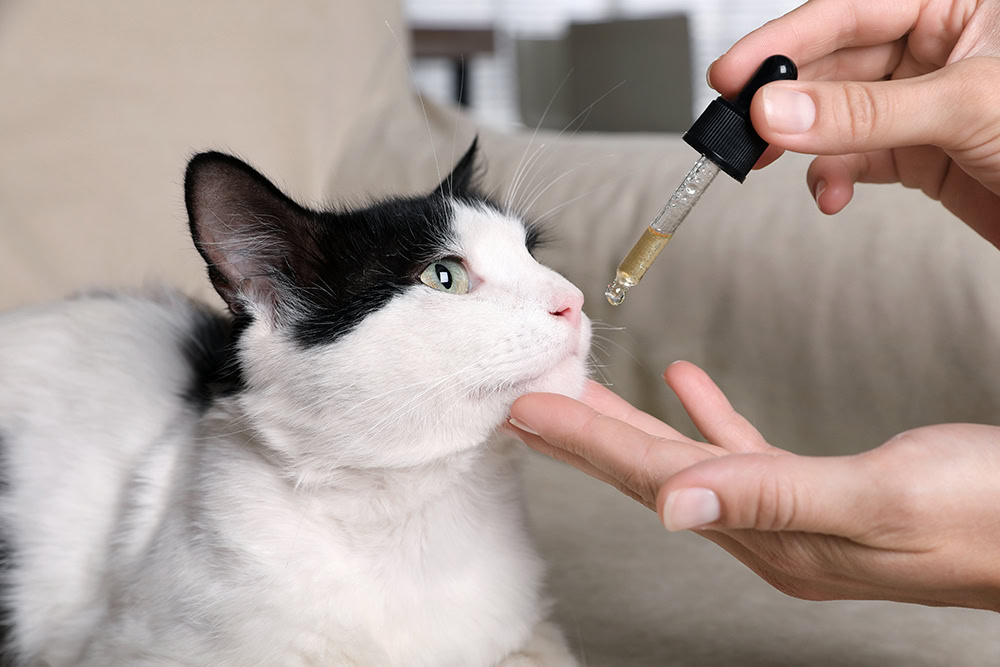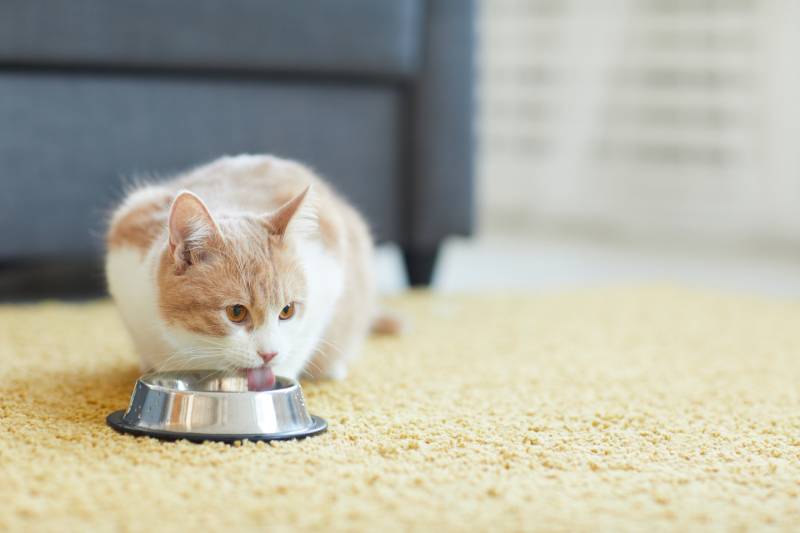Chameleons are popular pets, but they can be challenging to take care of. In general, reptile care can be a learning curve for people who have only had experience with cats or dogs, but most reptiles will usually give warning signs that something is amiss, such as trying to escape, refusing to eat, or exhibiting other odd behaviors. That said, chameleons rarely show signs of anything being amiss, so problems may slip entirely under an inexperienced owner’s radar until it is too late.
When it comes to the most basic care of a chameleon—offering food and water—it can be difficult to tell when either is needed. They do not eat every day, though they need a misting of water daily. In the most extreme cases, a chameleon can survive about 1 week without food and water, but they will be in bad shape afterward.

Knowing What Your Chameleon Needs
Although chameleons can technically survive with no food and water for a week or more, this is not something you should ever deliberately put your pet through. During that time, your chameleon would be dehydrated, and after that 1-week point, they would be starved. Just because chameleons can last that long without sustenance does not mean that they should.
Here are a chameleon’s general food and water guidelines.
Chameleons and Food
If your chameleon does not eat every day, don’t worry. This is typical behavior for these animals, as chameleons are known to go 2–3 days between meals. For this reason, it can sometimes be hard to tell when a chameleon is not eating enough.
Pay attention to subtle changes in your pet to make sure they’re well-fed. If they start losing weight or pigmentation, that is a sign that something is wrong. Likewise, if they seem exhausted or unable to open their mouth or eyes, they may be starving.
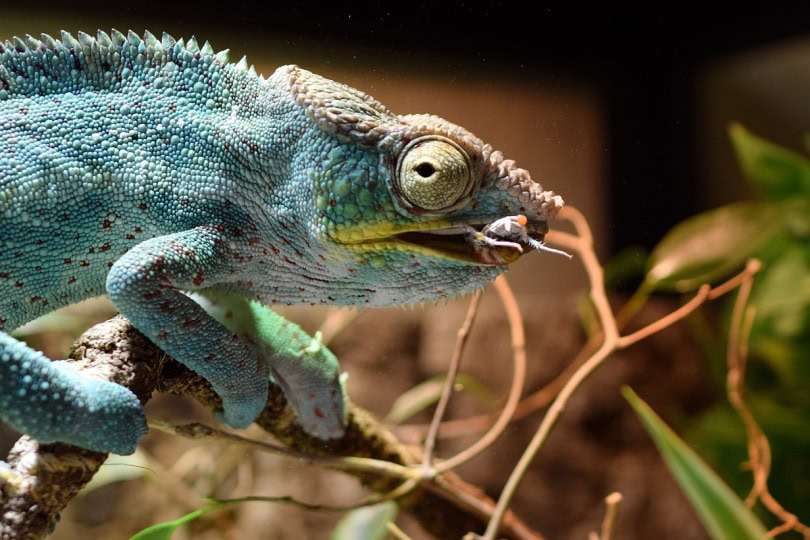
Chameleons and Water
Chameleons do not need to drink water daily, but they must be misted every day. If they are not, they will swiftly begin to dehydrate. Assuming that your pet is being misted each day, they can go 2 days without water and not suffer from dehydration. However, if they go a few days to a week without it, the signs of dehydration will begin to show.
One of the most common causes of bodily fluid loss in chameleons is dehydration. The signs of dehydration include lethargy, discolored urine, discolored eyes, and sunken eyes.
Why Your Chameleon Is Not Eating or Drinking
If you have noticed that your chameleon is not eating or drinking, there are many possible reasons for the behavior. Some are natural, normal processes that will likely sort themselves out. Others are more serious behavioral or medical issues. If you are worried about your chameleon’s well-being, do not hesitate to contact your vet.
Non-medical Reasons
There are many non-medical reasons that your chameleon may not eat or drink normally. These can be natural aspects of your pet’s life that you can’t control, such as the following:
- Shedding
- Experiencing a heat cycle
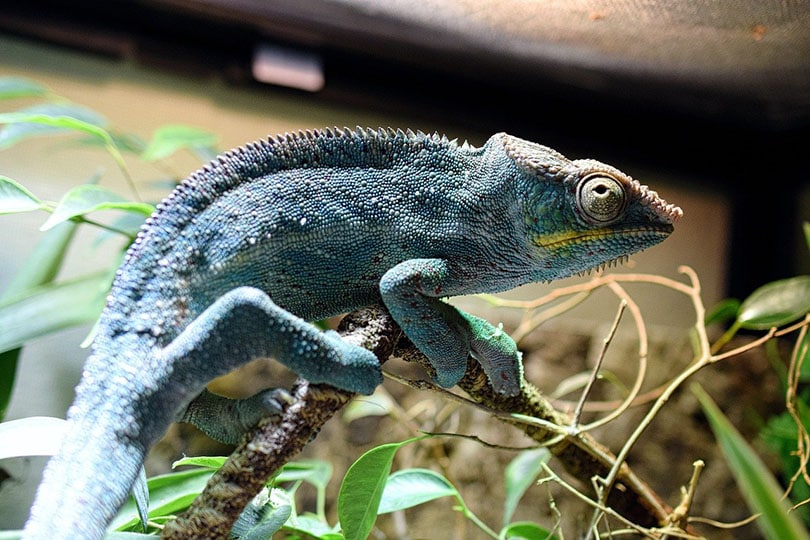
Other reasons you may have more control over, such as your chameleon’s food or environment. Related reasons that your pet may not be eating or drinking as much include:
- Enduring stressors from their environment
- Growing bored of the same food repeatedly
Medical Reasons
Health complications are another possible source of your chameleon’s changed eating and drinking habits. Here are a few medical issues that may cause your chameleon to stop eating or drinking.
- Intestinal blockage
- Injury on the tongue
- Infection of the gums, jaws, or tongue
- Gout
- Intestinal infection
- Parasites
If you suspect that your chameleon is suffering from any of these medical issues, reach out to your vet immediately.
How Long Can a Chameleon Be Left Alone?
Chameleons can endure being alone for a day or so, but they should never be left truly alone. If you are going out of town, ask a friend or neighbor to check on your pet at least once a day to ensure that they’re happy and healthy.

Summary
Chameleons are unique and fascinating creatures. Although they may not be the easiest pets to care for, they are remarkable companions, even for those with little experience caring for reptiles. While taking care of your chameleon, be sure to keep an eye on any subtle changes in your pet’s body or behavior. If you are ever concerned about their health, do not hesitate to reach out to your vet.
Featured Image Credit: Wolfgang Berroth, Shutterstock
